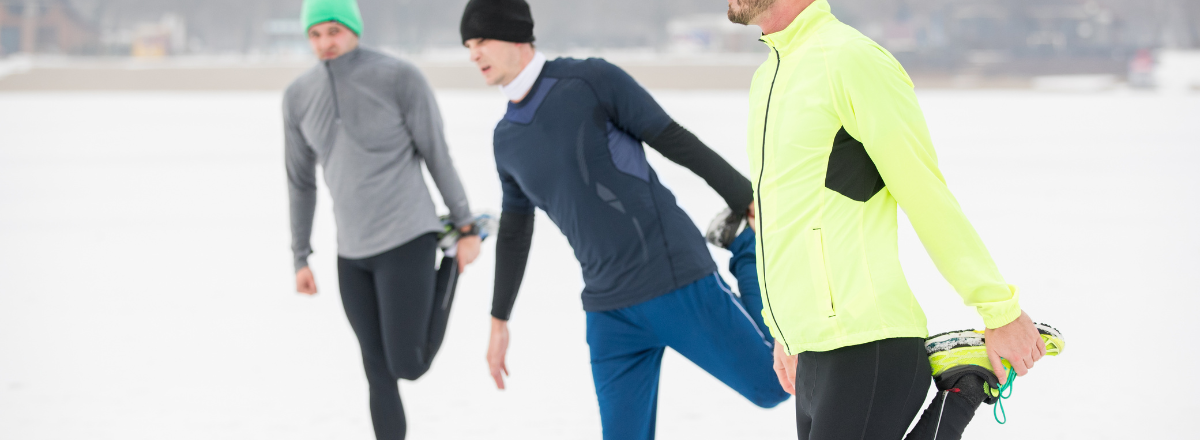It’s the time of year where temperatures plummet and sickness rates climb and with an overstretched NHS, we all need to do whatever we can to stay fit and well this winter.
‘As the weather turns colder, respiratory viruses, sickness bugs and other illnesses spread more easily, usually reaching their peak over the festive and new year period,’ says ZoomDoc Chief Medical Officer, Dr Kenny Livingstone.
Making some small additions now could mean a quicker recovery from winter bugs or even avoiding the flu completely.
Isn’t it worth a go? Here are six steps worth taking …
- Get vaccinated

Flu vaccination is safe and effective. It’s offered through the NHS to help protect people at risk of getting seriously ill from flu.
‘Getting the flu and COVID-19 vaccines are two of the most important things you can do to protect yourself from serious illness this winter,’ says Steve Russell, Chief Delivery Officer and National Director for Vaccinations and Screening at NHS England.
He and many other health experts have joined forces as part of the government’s ‘Get Winter Strong’ campaign, which urges people to have their seasonal vaccines, particularly if you’re in an at-risk group.
This includes:
- pregnant people
- young children
- those with chronic health conditions such as liver conditions, sickle cell disease, kidney disease, diabetes.
Contact your GP to book in for your vaccines as soon as possible as it takes a couple of weeks for the antibodies to build up in your body, so it’s ready to fight off flu when needed.
Read more about seasonal vaccines and why you need yours
- Take vitamin D

Vitamin D helps regulate the amount of calcium and phosphate in the body. These nutrients are needed to keep bones, teeth and muscles healthy.
If you take one vitamin this winter, make it vitamin D, which helps keep bones, teeth and muscles healthy – and contributes to a healthy immune system.
During the summer months most of us will get enough from natural sunlight as the sun is the best source.
Over the winter it’s very difficult to get enough from sunlight or food sources alone so the NHS recommends ‘everyone (including pregnant and breastfeeding women) should consider taking a daily supplement containing 10 micrograms of vitamin D during the autumn and winter.’
- Wash your hands (well)

Washing your hands is one of the easiest ways to protect yourself and others from illnesses such as food poisoning and viruses such as flu.
No one wants to be reminded of the health advice issued during the pandemic BUT remembering to wash hands with soap and water really is a simple way to get rid of germs.
There’s even evidence to suggest that hand washing can prevent about 30% of stomach bugs and about 20% of respiratory infections (colds). It really can make a difference.
Remember that antibacterial gels don’t kill norovirus germs. Your best bet is to wash hands with any soap (it doesn’t need to be antibacterial) for at least 20 seconds.
If you don’t have soap and water near you then antibacterial gel (at least 60% alcohol content) is better than nothing.
- Move as much as you can
We all know by now that regular exercise has a number of important health benefits.
From improving mood and sleep to reducing stress levels, even a moderate intensity workout can contribute to a healthy immune system.
NHS advice says ‘adults should do some type of physical activity every day. Exercise just once or twice a week can reduce the risk of heart disease or stroke.’
Not sure where to start? Generally speaking, the NHS recommends adults aim to:
- do strengthening activities that work all the major muscle groups (legs, hips, back, abdomen, chest, shoulders and arms) on at least 2 days a week
- do at least 150 minutes of moderate intensity activity a week or 75 minutes of vigorous intensity activity a week
- spread exercise evenly over 4 to 5 days a week, or every day
- reduce time spent sitting or lying down and break up long periods of not moving with some activity.
‘The key to exercising is to find something that you enjoy and that works for you and remember, something is better than nothing,’ says Dr Kenny.
- Keep warm

Keeping warm over the winter months can help to prevent colds, flu and more serious health problems such as heart attacks, strokes, pneumonia and depression.
According to NHS advice, ‘keeping warm over the winter months can help to prevent colds, flu and more serious health problems such as heart attacks, strokes, pneumonia and depression.’
Heating bills may be more than we’d like right now but health advice is to keep your home heated to ‘at least 18C in the rooms that you regularly use’ particularly if you already have a health condition.
- Stay home when you’re sick
If you do get sick or catch COVID, the flu or another virus doing the rounds this winter, staying home or away from other vulnerable people can be the best thing to do for you and them.
‘Most viruses get better with rest, fluids and paracetamol to help with pain or fever,’ says Dr Kenny.
Read why antibiotics won’t help with most winter bugs.
If you are unlucky enough to be struck down and unable to work for seven days or longer, sort out your sick note from the comfort of your own home.
ZoomDoc offers Medical Letters that can be sent out the same day and are fully verified by a UK-based GP. Get yours stress-free for just £45 without needing to see your usual GP.

